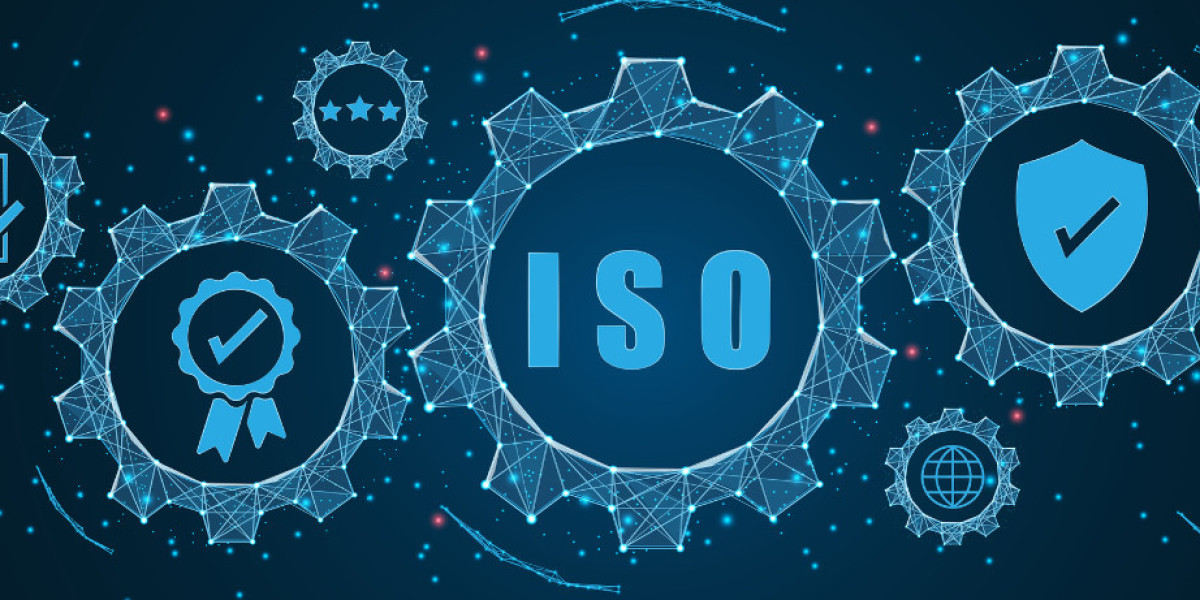ISO 9001 is the international standard for quality management systems (QMS), providing organizations with a framework to improve processes, ensure consistent quality, and meet customer expectations. Adopting Quality Management ISO 9001 demonstrates a commitment to excellence, opening doors to increased efficiency, customer satisfaction, and global recognition. This article will explore the essentials of ISO 9001, the benefits of implementation, and how it impacts organizational performance.
What is ISO 9001 and Why is It Important?
ISO 9001 is part of the ISO 9000 family, focusing on the principles of quality management and designed to help businesses improve their operations. It emphasizes a quality management system (QMS) tailored to meet specific organizational needs.
Achieving ISO 9001 certification signals to stakeholders that your business meets international standards for quality assurance and continuous improvement.
A Comprehensive Guide to Achieving ISO 9001 Certification
Achieving ISO 9001 certification involves several steps, requiring a structured approach to meet the standard’s requirements:
- Understanding ISO 9001 Requirements: ISO 9001 outlines specific criteria for a quality management system, including a focus on leadership, customer satisfaction, risk management, and continual improvement.
- Conducting a Gap Analysis : Assess your current processes against ISO 9001 requirements to identify areas for improvement.
- Developing a Quality Management System (QMS): Implement a QMS tailored to your organization's needs, ensuring alignment with the ISO 9001 standard.
- Employee Training: Provide ISO 9001 training to ensure that all employees understand their roles in maintaining quality standards.
- Internal Audits: Regular audits help identify non-conformities and areas needing corrective actions.
- Certification Audit: Engage an accredited certification body to conduct an external audit. Upon successful completion, your organization will achieve ISO 9001 certification.
Top 10 Benefits of Implementing an ISO 9001 Quality Management System
- Enhanced Customer Satisfaction: Meeting the ISO 9001 standard ensures consistent quality, improving customer experiences.
- Streamlined Processes: The process approach outlined in ISO 9001 identifies inefficiencies and optimizes workflows.
- Global Recognition: ISO 9001 certification boosts credibility, opening doors to international markets.
- Increased Employee Engagement: Clearly defined roles and ISO 9001 training foster a culture of accountability and teamwork.
- Continuous Improvement: ISO 9001 emphasizes ongoing development through data-driven strategies and corrective actions.
- Better Risk Management: Identifying and mitigating risks becomes a core aspect of your QMS.
- Cost Efficiency: Streamlined processes reduce waste and operational costs.
- Regulatory Compliance: ISO 9001 helps ensure compliance with industry-specific regulations and standards.
- Improved Supplier Relationships: A certified QMS builds trust and fosters stronger partnerships.
- Increased Profitability: Higher efficiency and customer loyalty lead to long-term financial growth.
Step-by-Step Process for ISO 9001 Implementation
Preparation
- Understand the ISO 9001 standard and its relevance to your business.
- Secure leadership commitment to the certification process.
Planning
- Define objectives and allocate resources for QMS development.
- Conduct risk assessments and align processes with ISO 9001 requirements.
Implementation
- Establish a QMS that incorporates the process approach and ensures quality assurance.
- Train employees on ISO 9001 principles and their responsibilities.
Monitoring and Evaluation
- Conduct regular internal audits to ensure compliance.
- Use corrective actions to address non-conformities.
Certification
- Work with an accredited body for external audits and achieve certification.
Understanding ISO 9001 Requirements: What Your Organization Needs to Know
The ISO 9001 standard outlines key requirements for a robust QMS:
- Leadership Commitment: Management must demonstrate a strong commitment to quality.
- Customer Focus: Ensuring products and services consistently meet customer expectations.
- Risk-Based Thinking: Identifying potential risks and opportunities.
- Process Approach: Viewing processes as interconnected systems for efficiency.
- Continuous Improvement: Using data and feedback to drive enhancements.
- Evidence-Based Decision Making: Relying on data and audits to inform strategies.
How ISO 9001 Certification Can Improve Customer Satisfaction
Customer satisfaction is at the core of Quality Management ISO 9001. By ensuring consistent quality and addressing customer needs effectively, businesses can:
- Build trust and loyalty among their customer base.
- Reduce complaints and enhance the overall customer experience.
- Respond to market demands with agility and confidence.
With the emphasis on feedback and corrective actions, ISO 9001 fosters a proactive approach to maintaining high standards.
Why Choose ISO 9001 Certification?
- Demonstrates Credibility: Certification enhances your organization’s reputation and builds stakeholder confidence.
- Encourages Continuous Improvement: ISO 9001’s focus on ongoing enhancements ensures your business stays competitive.
- Streamlines Operations: By adopting a process approach, businesses can achieve higher efficiency and lower costs.
- Supports Long-Term Growth: Meeting global quality standards prepares businesses for sustainable expansion.
Conclusion
Adopting Quality Management ISO 9001 is a strategic investment in operational excellence, customer satisfaction, and global competitiveness. By aligning with the ISO 9001 standard, organizations can enhance their processes, foster a culture of continuous improvement, and achieve long-term success.
Whether through implementing a robust QMS, conducting regular audits, or engaging in ISO 9001 training, every step of the journey contributes to measurable results. For businesses seeking to thrive in today’s dynamic environment, Quality Management ISO 9001 is the pathway to success.



